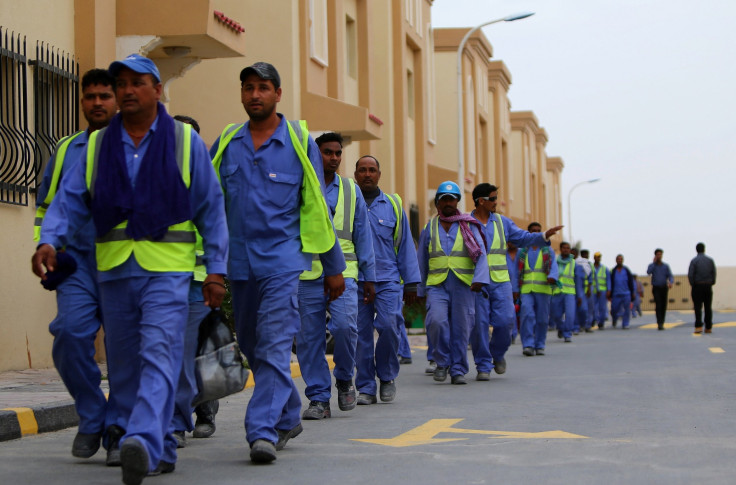Qatar Migrant Labor Rights: Country Launches New Payment Model To Address International Concerns Over Worker Abuses

Qatar has launched one of its most significant labor reforms in years in a move meant to address international concerns over the rights of migrant laborers in the Persian Gulf state, media outlets reported Tuesday. The changes come as the country continues to receive intense scrutiny for rampant exploitation of foreign workers as it prepares to host the 2022 FIFA World Cup men's soccer tournament.
The reforms call for the integration of electronic payment systems that ensure laborers are paid on time. Workers will have their pay electronically transferred directly into their bank accounts either biweekly or monthly. Companies that fail to pay staff on time could face fines, be prevented from recruiting new staff and have bosses jailed.
Delayed payment, particularly of blue-collar workers, has been a major complaint that human rights groups have launched against the country’s labor industries. A 2013 study found that one-fifth of migrant workers were “sometimes, rarely or never” paid on time.
“It’s a positive step in principle,” Mustafa Qadri, Amnesty International’s Gulf migrant rights researcher, told Agence France-Presse.
The country has come under criticism in recent months for its failure to address abuses against migrant laborers, including many who are working on World Cup-related projects. Rights organizations have said the living and working conditions of foreign workers are appalling, as laborers often work long hours for low pay in dangerously hot temperatures.
Amnesty published a report in May titled, “Promising Little, Delivering Less,” which accuses the government of failing to honor a commitment made last year to improve migrant labor rights.
all human rights violations going as planned in #Qatar #FIFA http://t.co/F3Z9trJiSl #fail
— Matt Freeman (@up2matt) July 16, 2015Rights organizations have called on FIFA, the scandal-plagued governing body of international soccer, to pressure Qatar into significantly reforming its labor industry as hundreds of workers are believed to have died in the process of building new infrastructure for the 2022 event.
Workers from Bangladesh, India, Nepal and the Philippines make up most Qatar’s labor force. It’s unclear exactly how many migrant laborers have died building World Cup infrastructure, but according to some data estimates, as many as 4,000 people could die by opening day of the tournament if practices are not significantly reformed, the Nation reported.
© Copyright IBTimes 2025. All rights reserved.






















